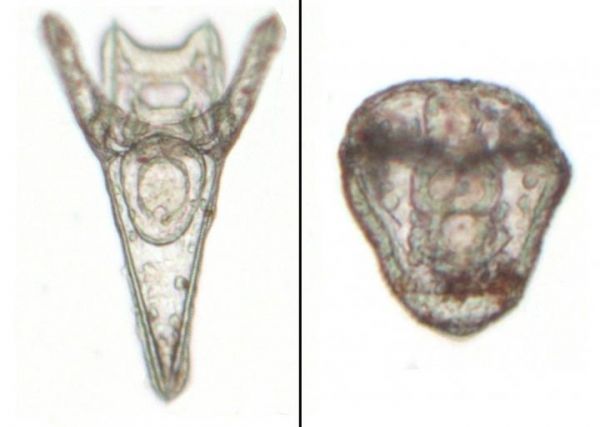Scientists soaked various plastic samples in seawater then removed the plastic and raised sea urchin embryos in the water.
The study, led by the University of Exeter, found that urchins developed a variety of abnormalities, including deformed skeletons and nervous systems.
These abnormalities were caused by chemicals embedded in the plastics leaching out into the water, rather than the plastics themselves.
The plastic-to-water ratio in the study would only be seen in severely polluted places, but the findings raise questions about the wider impact of plastic contaminants on marine life.
"We are learning more and more about how ingesting plastic affects marine animals," said Flora Rendell-Bhatti, of the Centre for Ecology and Conservation on Exeter's Penryn Campus in Cornwall.
Read more at: University of Exeter
Developing sea urchin larvae are affected by chemicals from marine microplastics. Left - not treated. Right - treated. (Photo Credit: Eva Jimenez-Guri)


